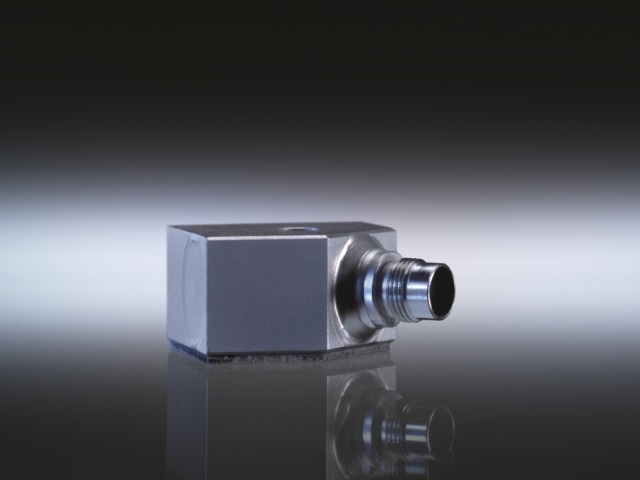Mar 7 2016
The new sensor from Kistler Instruments (http://tinyurl.com/KIL-5451-8764B) is a miniature, through hole triaxial accelerometer available with measurement ranges of ±50g and ±100g designed for dynamic vibration measurements, especially where space is limited. Full scale signal output is ±5V for both ranges. Applications include automotive NVH and durability, space and aerospace vehicle testing and subsystem vibration testing.
 Kistler Instruments’ miniature IEPE triaxial accelerometer
Kistler Instruments’ miniature IEPE triaxial accelerometer
The Kistler ceramic shear element technology ensures high immunity to base strain and the low mass, 6 gram, minimises any effect on the item under test. The welded titanium through hole fixing housing is hermetically sealed and M4.5 and ¼-28 miniature 4 pin connector options allow 360° cable orientation for maximum installation flexibility.
The IEPE (Integrated Electronics Piezoelectric) design with the TEDS (Transducer Electronic Data sheet) option delivers small size, light weight, robustness and low cabling costs whilst the aluminium anodized base ensures ground isolation from mounting surfaces.
The slim profile, base isolation, light weight and wide frequency response in the three orthogonal directions combined with centre-hole mounting flexibility for 360° cable orientation make the new Type 8764B accelerometers easy to install where space is restricted and the robust welded titanium construction ensures a long life in hostile environments.